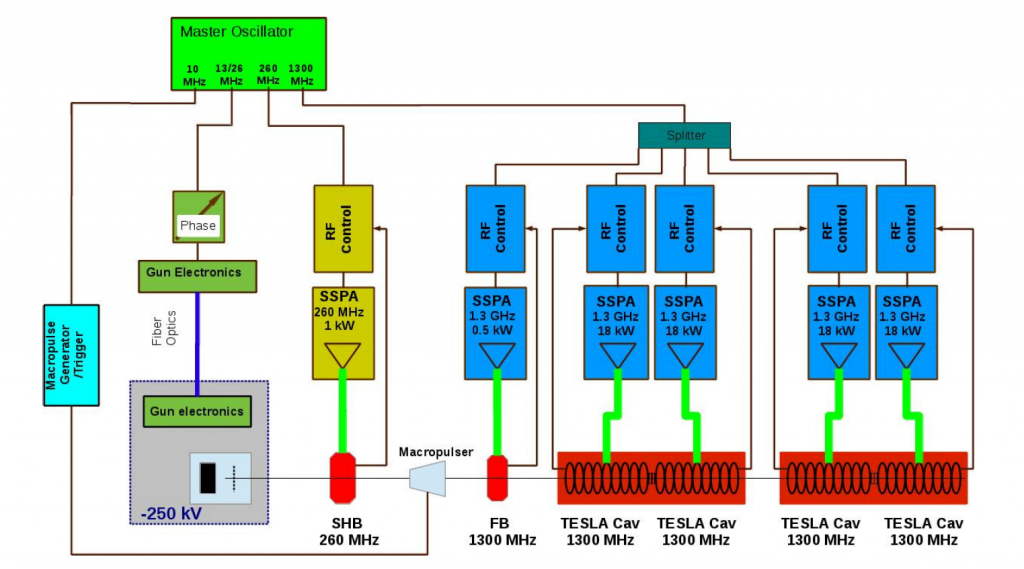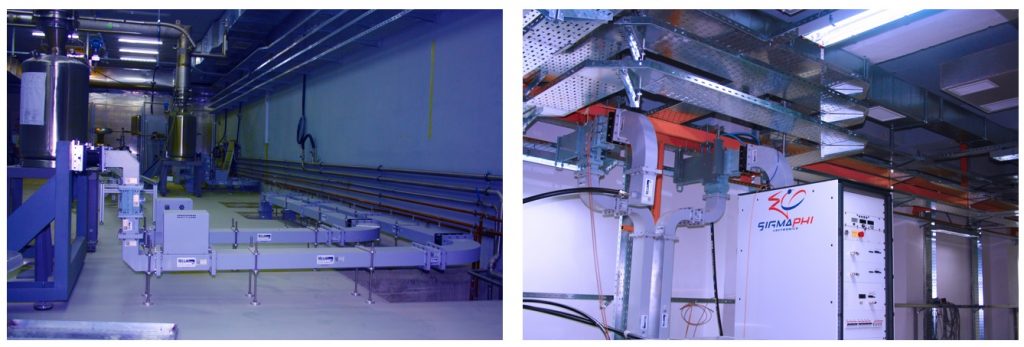TARLA beamline generates a seed beam with 1 mA average current to be accelerated up to 40 MeV using four superconducting TESLA cavities. Each cavity is powered by a solid-state amplifier emitting radio frequency waves. Additionally the injector system will consist of two normal conducting RF structures (named buncher cavities). Figure shows the block scheme of TARLA RF system.
The Master Oscillator (MO) and phase reference system at TARLA provides several RF reference frequencies (10-3900) MHz to widely spread locations with low phase noise and phase drifts.

Buncher Cavities
The subharmonic buncher cavity (SHB) (260MHz) and fundamental buncher (FB) cavity (1.3GHz) are utilized to compress ~500 ps FWHM-length bunches coming from the e-gun to 10 ps longitudinal (temporal) waist inside the first cell of the first superconducting (SC) cavity via ballistic bunching. The main parameters of buncher cavities are given in Table.
|
|
SHB |
FB |
Units |
|
Frequency |
260 |
1300 |
MHz |
|
Gap Voltage |
35 |
20 |
kV |
|
Input Power |
1067 |
320 |
Watt |
|
Q |
12000 |
13750 |
-- |
|
Tuning range |
250 |
1500 |
kHz |
Figures show TARLA buncher cavities.

Amplifiers
Each superconducting TESLA cavity is driven by a 18 kW (saturated) solid state power amplifier on its own and amplifiers are controlled by RF controllers as shown in figure ( See: Block scheme of RF system). The RF-power is transferred to the RF cavities by waveguides and fed into the cavities by couplers.

 Turkish Accelerator and Radiation Laboratory (TARLA) Think Future, Think TARLA
Turkish Accelerator and Radiation Laboratory (TARLA) Think Future, Think TARLA